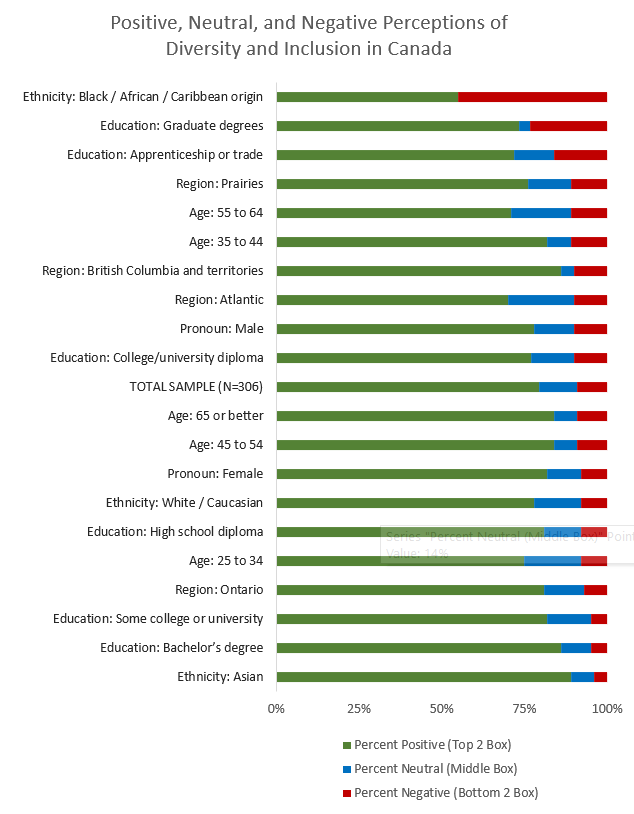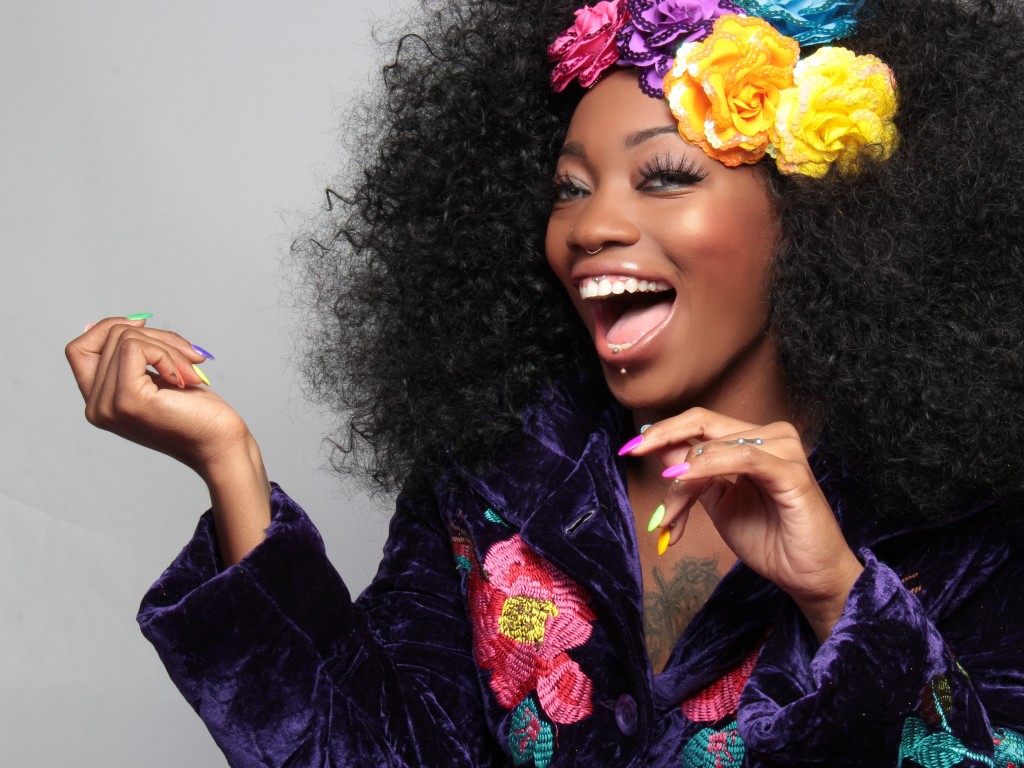Many people at Canadian Viewpoint contributed thoughts and resources to this post including, among others: Alysha Lee, Beth Depatie, Bryon Seale, Carol Udell, Gity Safai, Jason Zweig, Lisa Wight, Marissa Serrattan, Ryan Magder, Sasha Haig, and Wahib Ali.
Racism exists.
It’s in every country and in every industry. Through family, culture, entertainment, society, politics and more, we’re all taught stereotypes about other people. Some of those stereotypes are good and help us navigate more effectively through a complicated world. Others are simply wrong and ignorant.
The Canadian Viewpoint team has been paying very close attention to the protests both online and in our home town, Toronto, Canada. It’s touched our soul and broken some hearts. It’s a matter of great importance to us not because 57% of our team members are visible minorities but because diversity and inclusion are at the core of who we are. Given that Statistics Canada says 52% of people in Toronto are visible minorities, we’re proud to say that our family is reflective of our larger community.
We celebrate all the holidays together whether it’s Christmas, Hanukkah, Passover, Diwali, Eid, Ramadan, or something else. We have discussions openly with other and are there for each other as a family. We pride ourselves on genuinely being there for everyone in every way we can. We value every team member.
This openness and trust within the team has made it possible for us to have deep discussions about racism in Canada and in general. We wanted to share some of our thoughts about racism within the marketing research community and industry, and have compiled some of those thoughts here.
How do you feel about racism in Canada, including the recent protests?
Like me, a lot of people were sheltered and not really educated about racism. It was always such a hush hush topic in school. I think people feel disappointed and let down once they see racism in action. We have to recognize that racism doesn’t only happen between people from different ethnicities. It also happens when people within the same ethnicity don’t share the same upbringing – they aren’t seen as “Black” or “Asian” or “Hispanic” enough.
I’m part of a marginalized community but people don’t know because my skin colour is light. My reality is that when some people find out, their notions about me change and they start reverting to stereotypes. They treat me differently, they’re cautious about telling jokes, and some friends tiptoe around me because they don’t know if I’m “cool with it”. Stereotypes that simply aren’t true can breed racism and create prejudices.
It has been a very emotional few weeks. I remember having a talk with my father in high school about having “healthy mistrust for law enforcement.” It didn’t really sink in until I was in post-secondary education. It’s important to recognize that racism exists not just in the USA, but also in Canada. Aboriginal, Black (Afro-Caribbean Canadians), and Asian people have faced racism here in Canada.
Some of the protests got out of hand but we need to recognize their purpose. Something has to change and the protests were extremely successful in disrupting our thought patterns and generating broad social attention. This is how we can start creating change and fair solutions. We can all work together to make it better for everyone in all areas of our lives – workplaces, schools, and society!
Have you ever experienced racism in your career in market research?
Yes, many times it was subtle and several were overt. In one case, I had a great relationship with a client over the phone but one day, right after we met in person, they suddenly got in touch with my manager to request a new contact.
What should people do when they hear a colleague say or do something racist?
Under no circumstances is this ever OK. If there’s ever a question, see Ontario’s Bill 168 – Occupational Health and Safety Amendment Act (Violence and Harassment in the Workplace), 2009, S.O. 2009, c. 23. However, some people haven’t had enough experience or education about racism and are ignorant to the fact that what they had said or done is deemed racist and inappropriate.
In these cases, try to educate them on why what they said is racist. If you don’t feel comfortable calling it out yourself or you don’t feel that you’re in a position of power to say something, speak with your manager to figure out next steps. Most people in our industry are not racist but we all make mistakes. Sometimes a kind word goes a long way. Of course, if they dismiss the help, record the incident and report it.
How can your colleagues be better allies for people of colour?
Treat everyone as the equals they are.
Really listen to your colleagues when they share their experiences.
If you see or hear something inappropriate, address it or report it as soon as you can.
Get involved in initiatives to raise awareness, educate yourself, or participate in training about discrimination, systemic racism, privilege, and violence.
Make sure people from a wide range of ethnicities and backgrounds are involved in all of your work committees: e.g., health and safety, social committee, volunteer work.
What diversity and inclusions initiatives have you seen in our industry that make you proud to be a researcher?
I’m not aware of any. I think I’ll have to start something.
(After some research, we discovered WIRe in Color!)
What types of diversity and inclusion initiatives would you like to see in our industry?
More than half of the people who live in Toronto are visible minorities. I would like to see that represented within all market research companies in Toronto. Across Canada, I would like to see all ethnicities at representative levels within every company.
I would also like to see webinars and conferences feature speakers from more ethnically diverse people, not only in discussions about diversity but also as experts on all aspects of the marketing research industry.
https://www.youtube.com/watch?v=4K5fbQ1-zps
Resources
Government
- A collection of Government of Canada resources related to racism and diversity.
- Taking Action Against System Racism and Religious Discrimination Including Islamophobia: Report on the Standing Committee on Canadian Heritage
Film
- Understanding the Historical Context of Black Lives Matter
- 13th: An in-depth look at the prison system in the United States and how it reveals the nation’s history of racial inequality.
- A series of videos and documentaries on anti-racism curated by the National Film Board of Canada.
Associations
- WIRe in Color group aims to raise the visibility of women of color in and outside of the market research industry and to further progress the conversation of workplace inclusion by championing racial and cultural diversity and equity in our field.
- Black History Ottawa: Black History Ottawa is a registered Canadian charity with a mandate to advance education by increasing the public’s knowledge and appreciation of, and by carrying out research in, the history, culture, traditions and achievements of Canadians of African descent.
- Canadian Anti-racism Network: The Society tracks and monitors hate group activity, provides victim support, provides public education, helps youth leave hate groups, liaises with law enforcement, advocates for legislative change to help stop systemic racism and hate motivated activity.
Museums
- Virtual Museum of Canada – On the Road North – Black Canada and the Journey to Freedom: The Virtual Museum of Canada (VMC) uncovers the history of Black Canadians and their contributions to the establishment of Canada. The project was completed in collaboration with Immigration, Refugees and Citizenship Canada (IRCC) and is available for display in your region.
- Amherstburg Freedom Museum: Currently closed but you can browse the website and make a donation while you wait for it to open again. The Museum tells the story of African-Canadians’ journey and contributions by preserving stories and presenting artifacts that educate and inspire.
You might like to read these:



